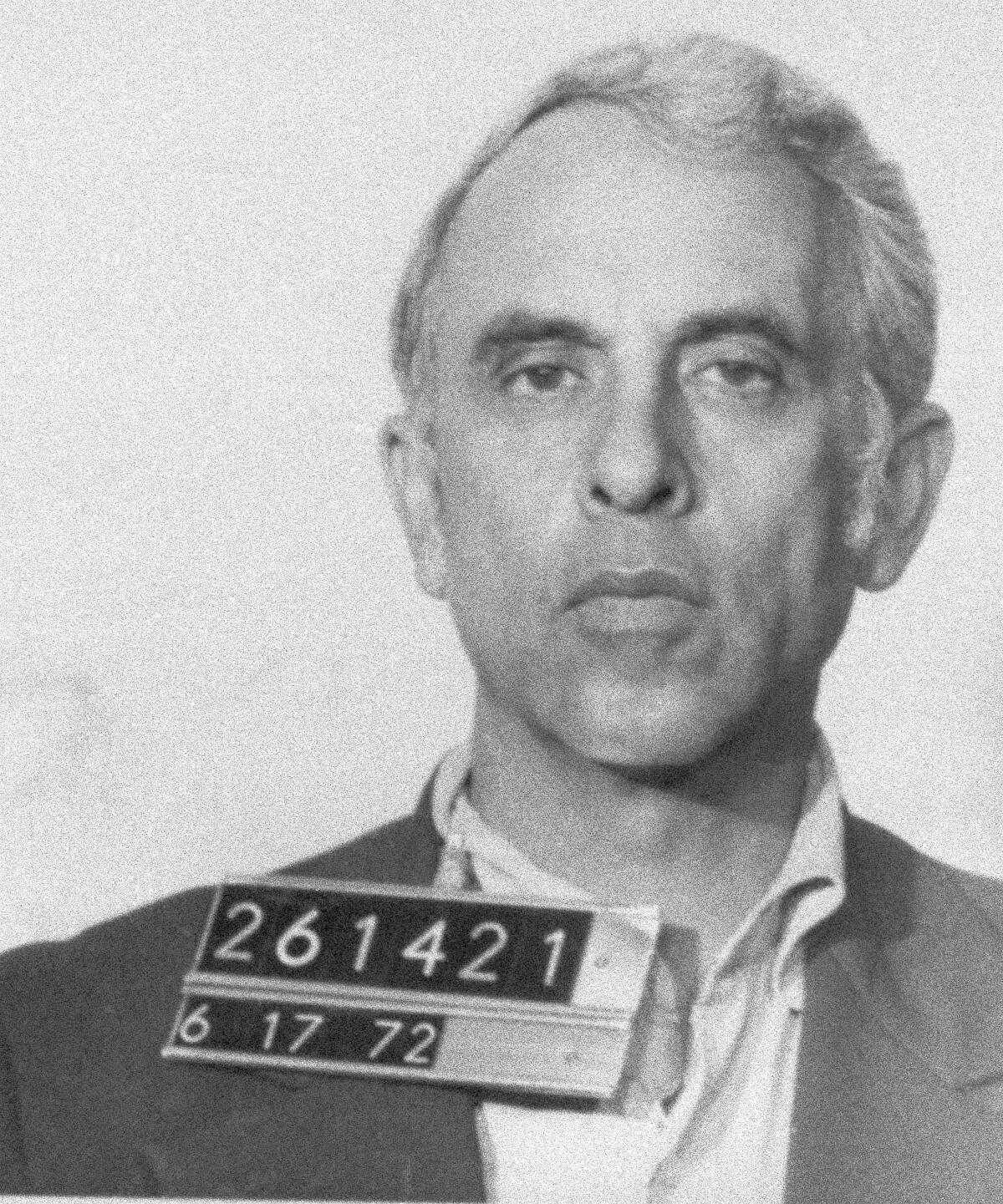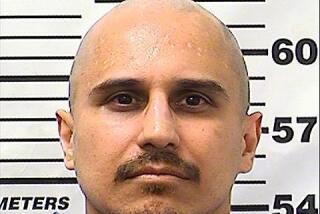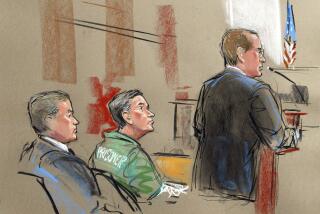Eugenio Martínez, Watergate burglar whose bungled break-in led to Nixon’s fall, dies

- Share via
Eugenio Rolando Martínez, one of five men whose arrest while burglarizing the Watergate complex in Washington ultimately led to President Nixon’s resignation in 1974, has died. He was 98.
Martinez died Feb. 6 at his daughter’s home in the Central Florida city of Minneola.
A CIA contract agent who ran hundreds of covert missions from Miami to his native Cuba, Martínez was among four Miami Cuban exiles recruited by top Nixon aides to break in to the Democratic National Committee’s Watergate headquarters in May and June of 1972 along with a security coordinator for Nixon’s reelection campaign.
They were told to tap phones and look for financial connections between Cuban dictator Fidel Castro and George McGovern, Nixon’s opponent in his reelection bid.
While in the Watergate office building on June 17, the men were discovered by a security guard who called police after noticing tape they had placed over door latches. Their arrests — they were caught with cash, gloves, lock picks and a radio — set off a series of investigations that ultimately brought down Nixon, who resigned rather than face impeachment and was pardoned by his successor, Gerald Ford.
All five burglars were convicted in the scheme, as were two of Nixon’s senior aides, E. Howard Hunt and G. Gordon Liddy. Martínez, perhaps the most mysterious of the Watergate burglars, served 15 months in prison.
In a column he penned in 1974, Martínez described the scheme as a bungled affair that reminded him of the 1961 Bay of Pigs invasion of Cuba — an ill-fated, poorly planned attempt by the CIA to spur revolution by attacking the communist Castro’s troops with Cuban exile troops.
In the mid-1990s, the Discovery Channel aired a five-part series on Watergate, calling it a “refresher course” on the audacious White House scandal that drove President Nixon from office.
Martínez, born in July of 1922 in Artemisa, Cuba, was a prolific asset for the CIA in the 1960s, running hundreds of missions to the island from Miami. Martínez’s granddaughter, Michelle Diaz, said her grandfather conducted 365 missions in all.
Martínez, who would go on to earn his U.S. citizenship, helped coordinate the Bay of Pigs invasion. And, though he denied it for years, he was still on the CIA’s payroll at the time of his arrest at the Watergate, a fact revealed in 2016 when the CIA declassified its own 155-page report on the involvement of its assets in the break-in.
After his release from prison, Martínez worked as a car salesman. He was pardoned by President Reagan in 1983, becoming the only person embroiled in the Watergate scandal other than Nixon to receive a presidential pardon.
Former Cuban leader Fidel Castro, the charismatic icon of leftist revolution who thrust his Caribbean nation onto the world stage by provoking Cold War confrontation and defying U.S. policy through 11 administrations, has died.
While Martínez will be known first in history books as one of the Watergate burglars, it was this work — his efforts to topple the Castro regime and end a mass exile of Cubans in Miami — that earned Martínez his reputation in his hometown.
Martínez was known by his friends in Miami as “Musculito,” an endearing term for a man who still had exercise equipment in his South Beach apartment into his 90s. He was often stopped for pictures and conversation when he would go out to eat, especially in Little Havana, said his granddaughter. She said in recent years that she would sometimes find him at the iconic Versailles restaurant late at night, dressed sharply and talking with friends.
“We could have 20 interruptions while we were eating and he would have a smile on his face,” she said. “Whoever would call him, he would answer their questions.”
Martínez is survived by his daughter, granddaughter and a grandson, Antonio Toscano Jr.
More to Read
Start your day right
Sign up for Essential California for the L.A. Times biggest news, features and recommendations in your inbox six days a week.
You may occasionally receive promotional content from the Los Angeles Times.






